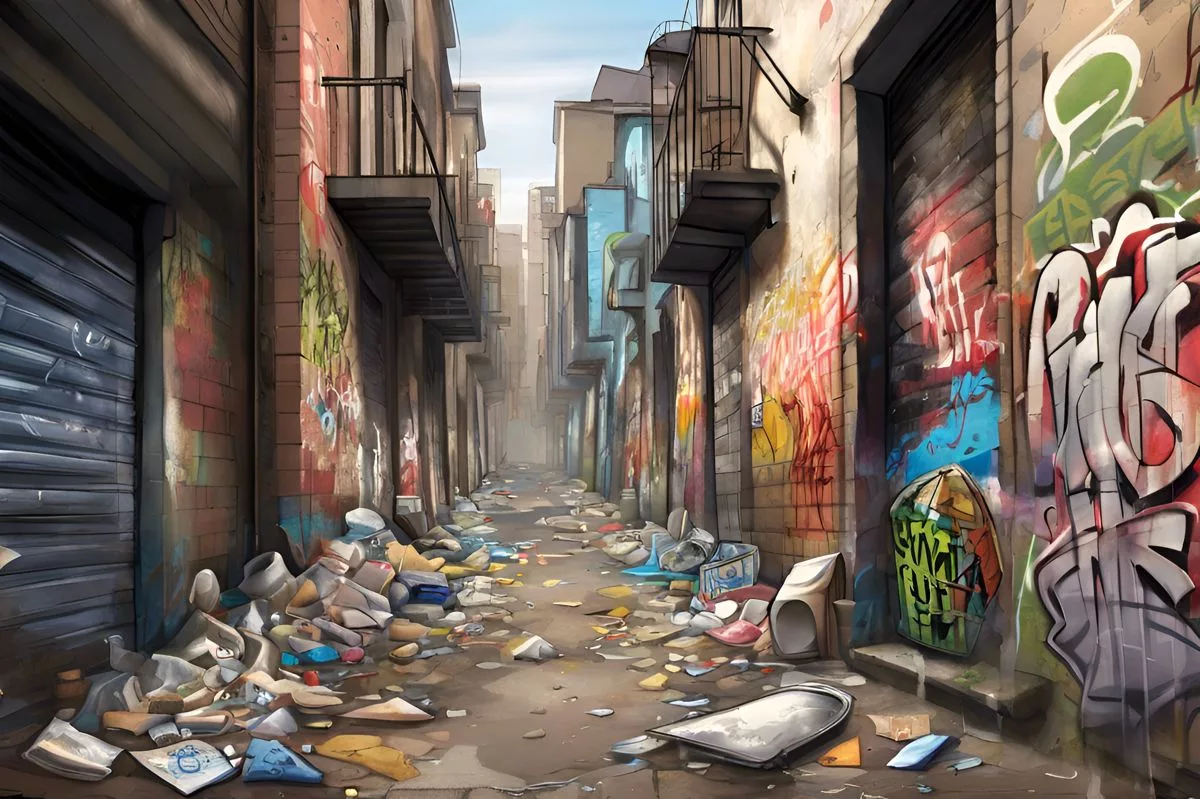Cape Town is cracking down on unlawful waste disposal, issuing fines and seizing vehicles involved in such offences. The city’s Law Enforcement Department enforces a steep fine of R5000 and confiscates the offender’s vehicle, along with escalating release fees for subsequent offences. Communities are urged to report incidents of unlawful dumping to speed up the investigation process, and the city implores its citizens to take shared responsibility and report any cases of unlawful waste disposal. The growing issue of unlawful dumping casts a dark, damaging shadow on the city’s environment, properties, and infrastructure.
How is Cape Town combating unlawful waste disposal?
Cape Town is taking strict measures to combat unlawful waste disposal, issuing 7,778 fines in a span of six months and seizing 68 vehicles involved in such offences. The Law Enforcement Department enforces a steep fine of R5000 and confiscates the offender’s vehicle, along with escalating release fees for subsequent offences. Communities are urged to report incidents of unlawful dumping to speed up the investigation process. The city implores its citizens to take shared responsibility and report any cases of unlawful waste disposal.
Urban expansion and population growth often come with the heavy burden of maintaining cleanliness and ensuring environmental stability. In this ever-growing cityscape, the onus of preserving the pristine condition of the urban environment lies not just on the city administration but also on its inhabitants. A notable issue that continues to plague the city administration is unlawful waste disposal, a problem that demands immediate attention.
The City’s Stand
In a recent monthly gathering of the city’s Safety and Security Portfolio Committee, the focus was on the Directorate’s updated quarterly performance report. The discussion largely revolved around the actions taken to prevent unlawful waste disposal across the city.
In a span of six months, from July to December 2023, the city’s traffic service, law enforcement, and metro police departments collectively issued an impressive total of 7,778 fines related to unlawful waste disposal. The magnitude of this enforcement drive is apparent in the sheer volume of fines issued, a clear demonstration of the city’s firm resolve to confront this issue directly.
The committee appreciated the considerable progress made in addressing littering and unlawful waste disposal. This progress was further supported by several other performance indicators, including the application of technological advancements such as CCTV surveillance, scrutinization of scrap metal dealers, and tactical roadblocks to prevent drunk driving.
Strict Penalties for Offenders
In this time frame, the Law Enforcement Department took stringent measures, seizing 68 vehicles involved in unlawful waste disposal. Asserting the city’s stern policy against such offences, the department enforced an additional deterrent – a steep fine of R5000 along with the confiscation of the offender’s vehicle. Moreover, the vehicle’s owner or driver would be obligated to pay a release fee of R8,700, subject to necessary administrative procedures.
The city’s progressive penalty system doesn’t end here. In the event of a second offence by the same vehicle, the release fee escalates to R11,700, and for a subsequent offence, it soars to R17,400. These penalties mirror the city’s relentless efforts towards environmental conservation and cleanliness.
The Impact of Unlawful Dumping
The growing issue of unlawful dumping casts a dark, damaging shadow on the city’s environment, properties, and infrastructure. The aftermath of such dumping often surfaces months or even years later. For instance, illegal chemical disposal can negatively impact underground water sources, leading to severe environmental and health risks.
To speed up the investigation process, communities are urged to report any incidents of unlawful dumping, providing comprehensive information such as the date, time, location, and the details of the involved vehicle. While Law Enforcement officers regularly monitor known dumping sites, they also heavily depend on information reported by residents.
A Call to Action
The Chairman of the Safety and Security Portfolio Committee, Councillor Mzwakhe Nqavashe, reiterated the seriousness of unlawful waste disposal. He stated, “Unlawful waste disposal is a severe offence and a selfish act that displays total disregard for the rights, health, and wellbeing of others, including future generations.”
The city implores its citizens to report unlawful waste disposal to the City’s Public Emergency Communication Centre, echoing the mantra of shared responsibility. The battle against unlawful waste disposal isn’t confined to enforcement services; it’s a communal obligation for every inhabitant of the city.
As we move forward, let’s bear in mind that if you see something, you should report it. The battle against unlawful waste disposal is a collective endeavour, vital for preserving the purity of our city for forthcoming generations.
What should I do if I witness unlawful waste disposal?
Communities are urged to report incidents of unlawful dumping to speed up the investigation process. If you witness unlawful waste disposal, you should report it to the City’s Public Emergency Communication Centre, providing comprehensive information such as the date, time, location, and the details of the involved vehicle.
What are the penalties for unlawful waste disposal in Cape Town?
The Law Enforcement Department enforces a steep fine of R5000 and confiscates the offender’s vehicle involved in unlawful waste disposal. Moreover, the vehicle’s owner or driver would be obligated to pay a release fee of R8,700, subject to necessary administrative procedures. In case of a second offence by the same vehicle, the release fee escalates to R11,700, and for a subsequent offence, it soars to R17,400.
How many fines have been issued for unlawful waste disposal in Cape Town?
In a span of six months, from July to December 2023, the city’s traffic service, law enforcement, and metro police departments collectively issued a total of 7,778 fines related to unlawful waste disposal.
How many vehicles have been seized for unlawful waste disposal in Cape Town?
In the same six-month period, the Law Enforcement Department seized 68 vehicles involved in unlawful waste disposal.
Why is unlawful dumping a serious issue?
The growing issue of unlawful dumping casts a dark, damaging shadow on the city’s environment, properties, and infrastructure. The aftermath of such dumping can negatively impact underground water sources, leading to severe environmental and health risks.
What can citizens do to help combat unlawful waste disposal?
The city implores its citizens to take shared responsibility and report any cases of unlawful waste disposal. The battle against unlawful waste disposal isn’t confined to enforcement services; it’s a communal obligation for every inhabitant of the city.












